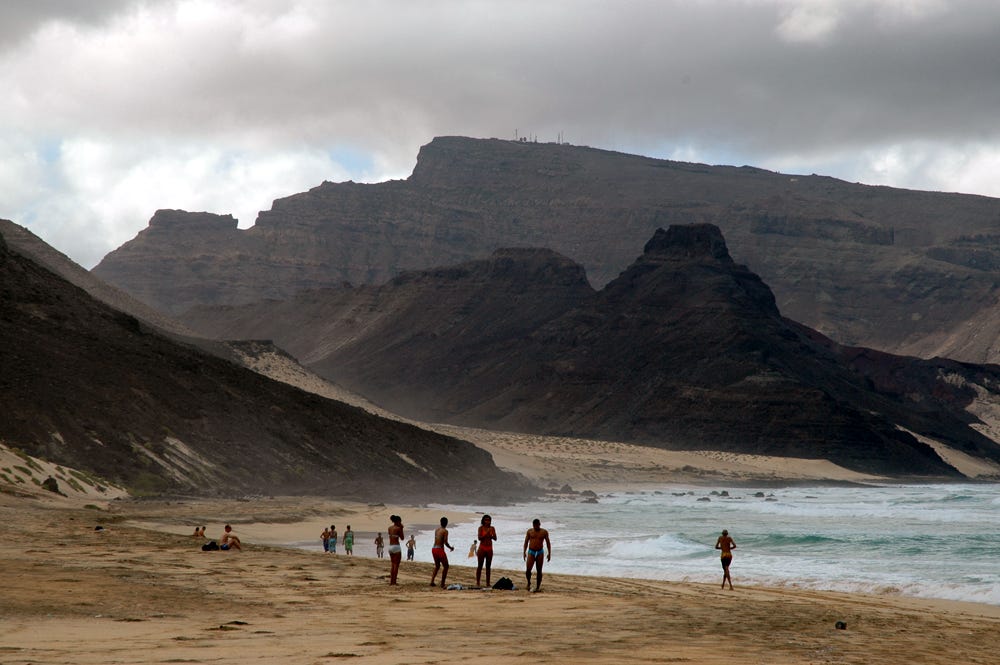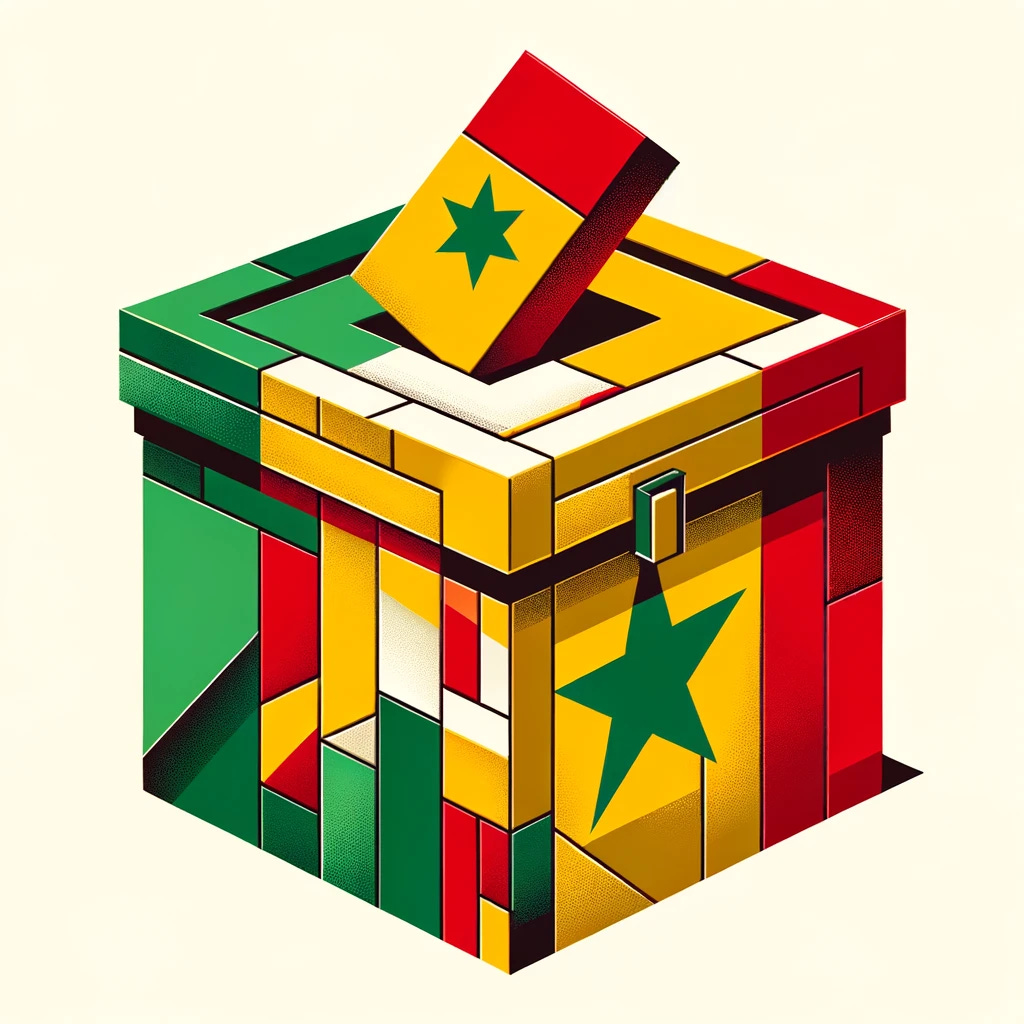🔅 Nigeria's Transition to SUVs as a Societal Mirror & Senegal's Electrifying Election
Plus, Johannesburg's Water Crisis Unfolds & Sudan's Desperate Plea for Aid
Photo of the Day

Market Mondays
🔴 Johannesburg SE: 72,419.70 (-5.82%)
🟢 Ghana SE: 3,537.79 (+13.02%)
🟢 Nairobi SE: 107.66 (+16.88%)
🟢 US S&P 500: 5,234.18 (+10.36%)
🟢 Nigerian SE: 104,647.37 (+39.95%)
🟢 Shanghai Composite: 3,048.03 (+2.89%)
Uganda’s gold exports skyrocketed more than ten times over in 2023. The country has now crowned itself a significant player in the regional gold trade, boasting exports valued at $2.3 billion, up from a mere $201 million the year before. Meanwhile, the EU decided Uganda's not playing in the financial dark side anymore, scrubbing it off its anti-money laundering blacklist.
South Africa's inflation rate reached a four-month high of 5.6%. This hike might just have the central bank keeping the borrowing rates steady at its next meeting.
Ghana marked 3.8% growth in the last quarter, the fastest rate in a year. Yet, its currency, the cedi, remains vulnerable and is one of the worst-performing currencies this year.
Kenya’s economic forecast is looking brighter than a midday sun, with predictions pegging growth at 6.3% for the year, a slight bump up from last year's 6.1%. President Ruto’s ambitious bottom-up strategy aims to turbocharge this growth to a dazzling 7.2% by 2027.
*Data accurate as of the close of markets across the continent
Spotlight Stories
SUVs in Nigeria: A Tale of Roads Untraveled and Status Unraveled

Once upon a time, in Nigeria, Mercedes Benz reigned supreme on the smooth roads of optimism. Fast-forward to the present, and it’s the era of the SUV—thanks, in no small part, to the country's not-so-fairy-tale road conditions.
But, as this wonderful opinion piece points out, this vehicular shift from Mercedes to SUV is more than just a change in taste; it's a societal transformation on wheels. If the Mercedes whispered of a time when Nigeria's future sparkled with promise, the SUV roars of a rugged reality—a symbol of cultural adaptation to a landscape marred by neglect and decay. This is not just about a preference for higher ground clearance; it's about the deeper acceptance of crumbling infrastructure as a way of life.
This is a must-read critique of Nigerian society, folks, so dig into it when you can.
Senegal Election
Yesterday, Senegal's political theatre hit a climax as it hosted its presidential elections—a show delayed but definitely not dampened. President Macky Sall's earlier attempts to hit the snooze button on the vote failed, and the political arena was electric after two major opposition players, freshly released from jail, rejoined the fray.
For the first time in 12 years, Sall's name was not on the ballot, so up stepped Amadou Ba, aged 62, representing the ruling coalition. A man of many hats - former PM and finance minister - Ba hoped to have charmed voters with promises of economic prosperity, hinting at a future fuelled by oil and gas.
But the opposition had 18 hopefuls, with Bassirou Diomaye Faye, a 43-year-old ex-tax man, catching the eye. Faye's rise to prominence wasn't just down to his charisma; it was backed by the political heavyweight Ousmane Sonko - a man whose popularity amongst the youth is akin to that of a rock star (minus the guitar).
Sonko's own presidential dreams were dashed a few months ago after he was convicted of defamation, so his endorsement of Faye was like passing the baton in a relay race charged with political adrenaline. If elected, Faye says he will tackle the twin villains of inequality and corruption and renegotiate the nation's oil and gas deals.
Who makes it to the next round in this electoral saga remains to be seen, as no opinion polls were conducted.
Johannesburg's H2Uh-Oh Moment

Just when you thought election season couldn't get any more complicated in South Africa, Johannesburg's taps have started to run dry. With elections around the corner, a large chunk of the city finds itself in a dry spell.
The root of this situation can be chalked down to the same issues that have led to the country's perennial blackouts: insufficient investment, maintenance issues, planning paralysis, incompetence, and corruption. In Johannesburg, over 40% of water is lost to leaks and theft.
Water Minister Senzo Mchunu, a member of President Cyril Ramaphosa's squad, has laid out a blueprint for salvation that includes reform and increased privatisation. Yet, he's scratching his head over why the predecessors from the African National Congress turned their posts into a spectator sport rather than actually tackling the issue head-on. "It should have been done years ago," he muses, voicing a disappointment shared by millions who'll be casting their votes in a few weeks.
Sudan's Cry for Help Amid War and Hunger, But Who's Listening?

A dire prediction of a million possible deaths in Sudan due to war and famine is looming, yet humanitarian agencies are only raising less than 5% of what's needed. Pleas for $2.7 billion in aid have resulted in just $131 million in response.
Since last April, Sudan has been caught in instability, sparking the displacement of 8.5 million people and 18 million staring down the barrel of acute food insecurity. And while the UN Security Council recently called for a Ramadan ceasefire, the Sudanese military and the RSF seem to have missed the call.
The international aid jar remains empty, and the UN's forecast is chilling: more than 220,000 children could soon be lost to malnutrition if Sudan's SOS remains unanswered.
Food for Thought
“Even as the archer loves the arrow that flies, so too he loves the bow that remains constant in his hands."
— Nigerian Proverb



